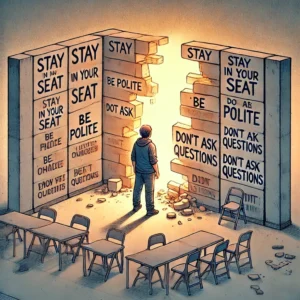Goal vs. Commitment
I was working with a client the other day on the promises she had made herself for the week. One promise was to make 10 sales calls to potential customers. When I asked if she had done it, she was pretty excited. She said, “I made 8!”
I said, “That’s great. You sound very excited!”
She said, “I am. Normally, I only make 1 or 2.”
I said, “Congratulations.”
Then I asked the tough question, the question that is the reason why people hire coaches, the pushy, annoying question: “Why didn’t you make 10 calls?”
“Well I made 8. That was really good.”
“Yes; I agreed. That was really good. I am just curious what happened to keep you from doing what you said you would do – make the 10 calls?”
“Oh,” she said, “well 10 was just a goal.”
Have you ever heard this before? Have you said it yourself? What is a goal? For many people it is something short of a commitment.
It means, “I will try.” It seems to mean, “I am aware that I cannot, or will not, do that, but it gives me something to aim for.”
Now, I think it’s great to have something to aim for. I believe this is a great mindset and a way to move forward. However, the problem is when we have a “goal,” we often hold back. We don’t go all out.
When however, we decided we are committed, we have an entirely different mindset. We say, “I am committed to being a good parent to my children.” Sports teams say, “We are committed to winning.”
We may say, “I am committed to getting a new job.” Yet something stops us from saying, “I am committed to getting a new job by November 1st.” What is that thing that stops us? Often it is fear of failing. A fear that if I say I’ll do it by November 1, I’ll have to deal with the fact that I didn’t do it by November 1. Therefore, we call it a “goal.” A goal gives us the ability to hedge; it gives us some wiggle room.
But consider what would be different if you decided to make commitments instead of goals. Not necessarily everywhere. Sometimes it’s good to consciously state, “This is just a goal.” What is most important though, is to be conscious of what you are promising – to “try” (a goal) or to “do it” (a commitment)? Sometimes, though it is scary, if you really want to get that thing you are after, you will want to make a commitment to yourself. See what happens.
And let us know!






